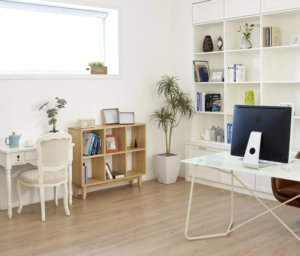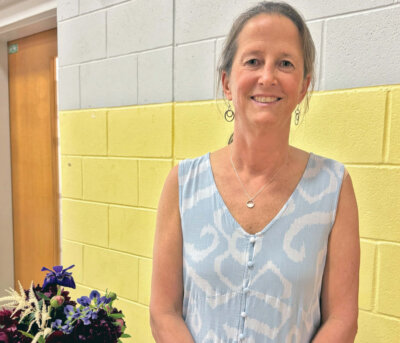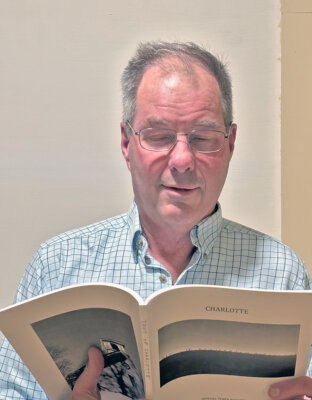Declutter, organize and stress less

A few years back there was a distinct rustle of interest among many of my women friends. The excited talk going around was about a new book called The Life-Changing Magic of Tidying Up by Marie Kondo. Kondo surpasses all imaginings about a tidy, neat home or office. Her constant quest for beauty and simplicity are a powerful message to most of us who struggle with the basic maintenance of our lives. Kondo’s escalating international acclaim has had her interviewed by the New York Times, Atlantic, Guardian and New Yorker.
This new trend has many people diving through their closets and climbing through mounds of old paperwork and files, clearing family heirlooms from basements and then making multiple trips to Goodwill and making donations to local book sales. The possibilities to “spark joy” are endless!
As many rushed to get the book and read it, others experimented with some of her ideas, sampling and experiencing the idea of decluttering. This caught my attention in a big way.
I’ll confess that in science’s quest to understand the human genome I wonder if they’ll come up with a “neat” and “messy” gene. If genetic predisposition has any play in this, my genes will point to the messy marker. I’m not a slob, but I’m not great at throwing things away and weaker still at the seemingly simple task of organizing areas in my home. I walk into my office and sometimes walk out again immediately before I break into a sweat. I’d much rather be creating something or cultivating other parts of my life—organizing is both boring and detailed in a way I hate.
These days, though, there are people who can help you build systems and organize the various “habitats” in your life so that the hard part is made much easier and simpler.
What feels like a horrendous task for some is not only a breeze to others but an actual talent. One could argue that it’s a skill that one develops over time, but I’m willing to argue that some are automatically much better at organizing than others. They see the possible where others can’t envision anything but a jumble.
I hired Suzanne Lourie to help me out this winter with my home and got to learn both about her talent for clearing and her real gift for helping people work though the emotional process of decluttering. Her new business, right here in Charlotte, is called “Get it Done.”
Suzanne offers covers a remarkable array of skills for hands on support for decluttering and creating systems so you won’t fall back into old bad habits and offering resources for donating/selling your belongings and discovering options you may not have known on your own. It’s not just about the tangible stuff, but also time management along with the worries and stress that gets in the way of focusing on our priorities.
Tell me about your previous career in social work and how that affects your work with people in this new capacity.
A social work mantra is to “meet the client wherever they’re at” and the core value of respecting each person I work with absolutely applies in my professional organizing work. When I meet a new client I ask questions to help us get a clearer sense of their goals and what’s holding them back from getting organized. It’s important to articulate how the person will feel when they’re organized. This helps a lot when decision fatigue kicks in and motivation begins to wane.
Over and over I see clients feel a tremendous sense of relief in letting go of stuff that has been weighing them down. The journey may not always be comfortable, but working with clients to manage the discomfort is a skill I feel comfortable with given my many years practicing social work.
It’s very rewarding to see how uplifted and relieved people feel when they are making progress. As they integrate the systems and habits to support their goals, the positive ripple effect it has on other parts of their lives is a great motivator to maintain the organizational systems. Backsliding certainly can happen, but once there is a structure and system in place it’s much easier to get back on track.
Tell me about the kinds of different people you encounter? How there are different kinds of success with each person?
Some people have struggled throughout their lives with organization, while others have had some good systems in place and then a significant life event occurs. Many people have a vague sense that the clutter and disorganization are impacting other parts of their lives (stress in family relationships, not being able to invite people into their homes or offices, saying no to opportunities because of pressing need to “get organized”), but it can be a real “Aha!” moment to acknowledge the many ways clutter and disorganization impact the different spheres of our lives and our overall wellbeing.
Success means different things to different people. I need to understand how the client defines success and what kinds of changes they think are important. I don’t make the decisions about what or how much to let go of —the timeline is different for each person. The client always makes the final decisions; I’m the catalyst to keep the process moving and tied to their goals. Over time, most people discover owning less stuff contributes to a positive lifestyle, rather than feeling deprived.
Some people want homework between sessions, some like to have contact to help with accountability, and some are more successful working side by side throughout the process and integrating new habits between sessions. There is not one method that fits everyone.
The skills I bring to work with an older client may be quite different than those use with someone who has young children or whose children have moved out of the home. Similarly different skills are involved in working with someone who is very creative or someone who struggles with ADHD, depression or loss. The common thread is respecting the client wherever they are in the process and building on their success, keeping them motivated, acknowledging set backs and moving toward their goals.
What I find is most of us feel we should be able to do it on our own when we have more time, but the “right time” never materializes. I suggest people think about what the clutter is getting in the way of in their life (physically and emotionally), and remind them we hire professionals in many areas of life to assist us with projects or maintenance that may be outside of our scope of knowledge, or just too challenging to take on alone. t’s not about having a magazine-perfect home or becoming a minimalist, but rather feeling unencumbered in achieving your goals and being happy in your space.
Related Stories
Popular Stories
If you enjoy The Charlotte News, please consider making a donation. Your gift will help us produce more stories like this. The majority of our budget comes from charitable contributions. Your gift helps sustain The Charlotte News, keeping it a free service for everyone in town. Thank you.
Andrew Zehner, Board Chair








